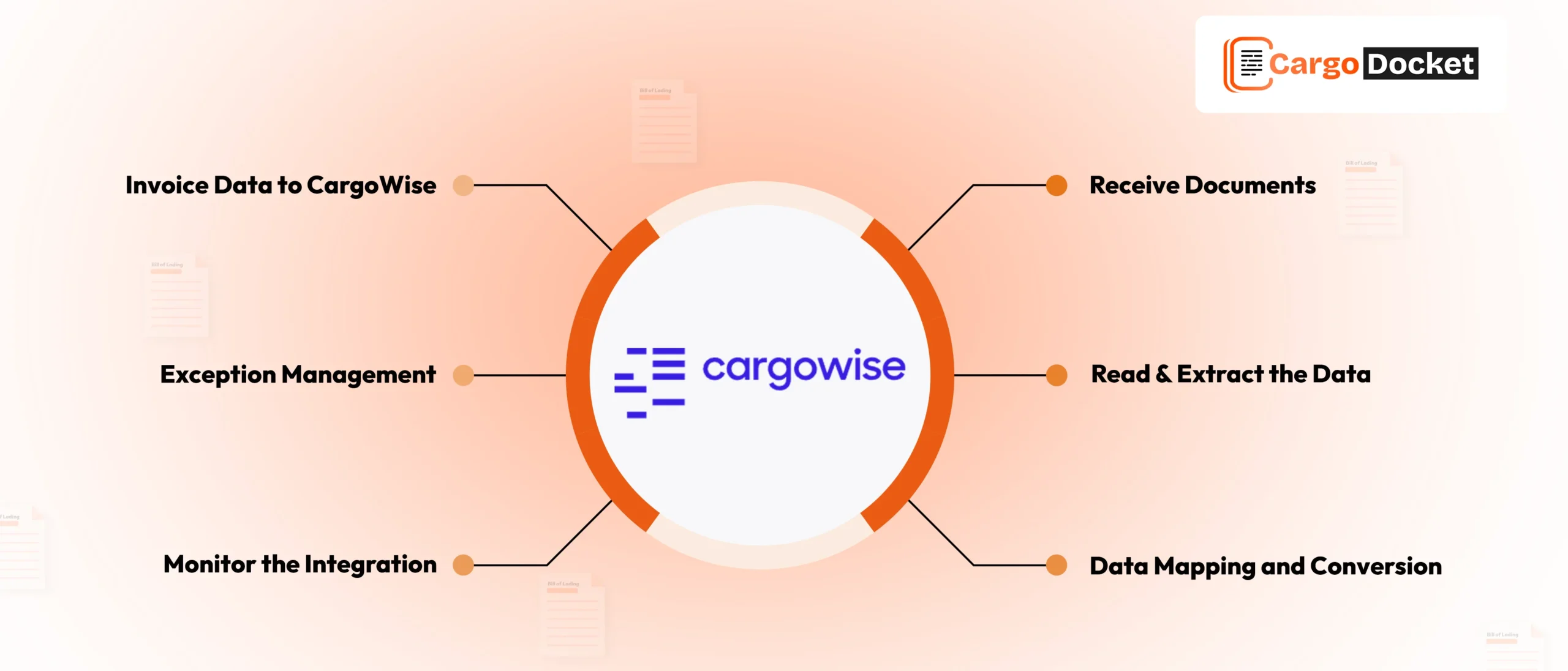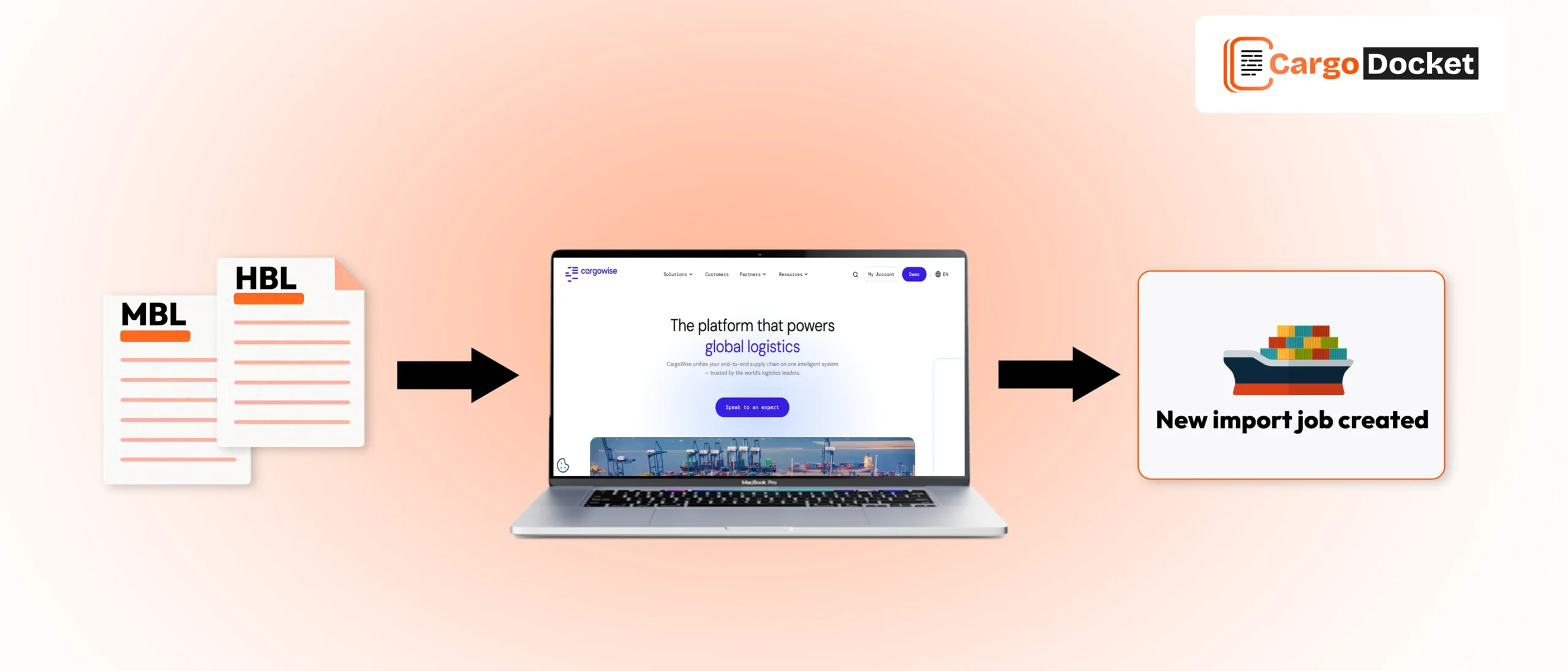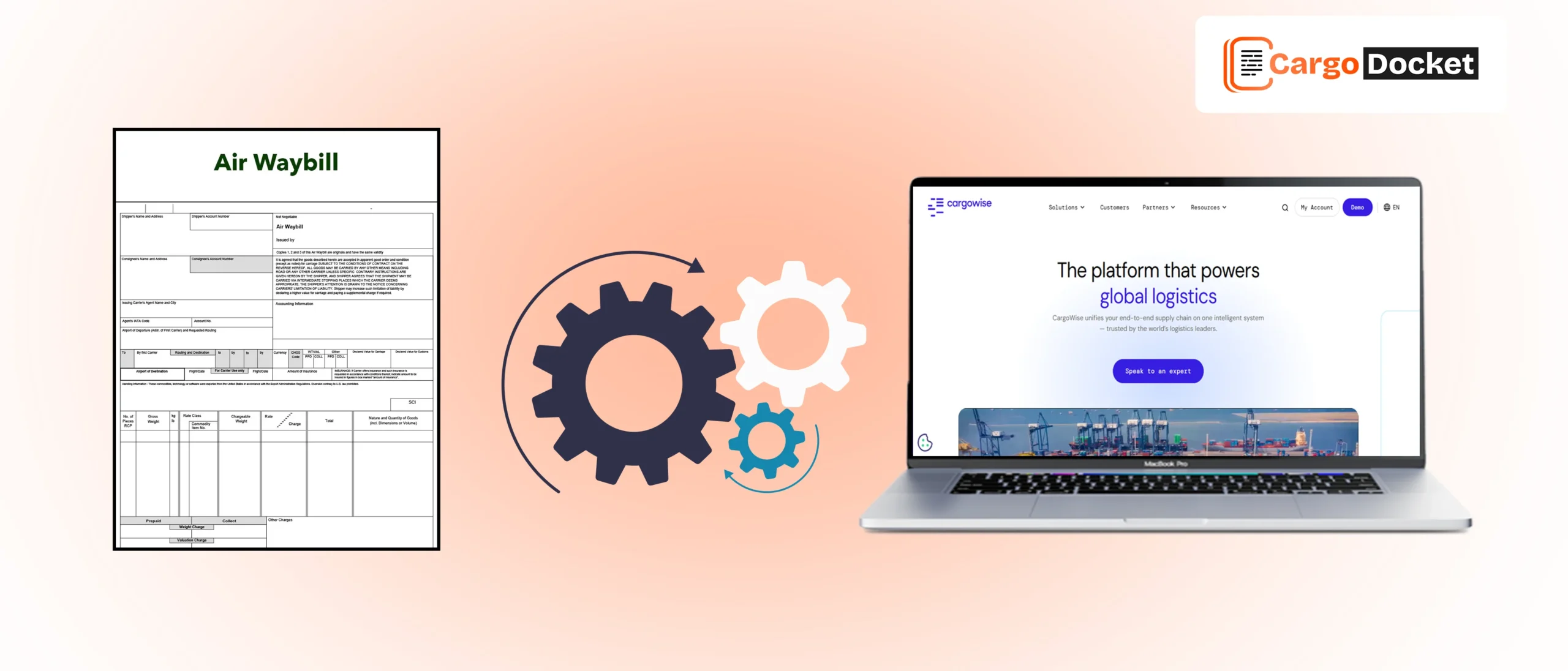Imagine that you’re being buried under mountains of shipping documents, invoices, and customs forms. Clients are waiting for updates, mistakes are made, and your staff is under stress. This just cannot be sustained in 2025. Logistics is more than just moving cargo; it’s also about transporting data efficiently, precisely, and conveniently.
Manual document handling wastes time, costs money, and creates frustration across your operations. Intelligent Document Processing (IDP) changes the game. It reads, understands, and extracts data from complex documents faster than any human ever could.
Let’s examine the top 10 logistics documents that are demanding to be automated using IDP and the reasons you should do it.
1. Bills of Lading (BoL)
Bills of Lading are the backbone of logistics operations. This crucial document functions as a receipt, a title of goods, and a contract of carriage, all rolled into one. From containerized ocean freight to over-the-road trucking, BoLs contain everything from shipper and consignee details to the freight terms and handling instructions. A single BoL error can cause massive shipment delays or costly fines.
Manually processing BoLs is exhausting, especially when dealing with hundreds or thousands every day. Each carrier has its format, making it tough to maintain consistency. That’s where IDP steps in, reading and extracting the data, no matter how different the layouts. Logistics businesses gain speed, accuracy, and better control over their freight documentation through bill of lading automation.
- Extracts key details regardless of format
- Reduces costly errors and shipment delays
- Integrates data directly into TMS or ERP systems
- Speeds up customs and compliance processes
2. Proofs of Delivery (POD)
Proof of Delivery documents seal the deal, confirming that the cargo reached the customer in good condition. It’s essential for billing, resolving disputes, and keeping customers happy. Traditionally, PODs are paper slips that drivers hand over for a signature, but paper gets lost, damaged, or misfiled, leading to delays in payments and disputes over deliveries.
Today, many logistics companies use electronic PODs, but transferring this data into systems still often requires manual entry. IDP captures POD details instantly, ensuring that everything from signatures to timestamps lands right in your systems without human error. This means faster invoicing, fewer disputes, and a smoother experience for your customers.
- Captures digital signatures and key delivery info
- Speeds up billing and cash flow
- Reduces errors from manual data entry
- Enhances customer service and visibility
3. Freight Invoices
Freight invoices are the financial heartbeat of logistics. They detail every service performed, including transportation, storage, surcharges, and ensure carriers and forwarders get paid. The number of invoices is enormous, as the freight forwarding sector is expected to generate the highest revenue. Processing them by hand wastes time and increases the possibility of errors.
Even a minor error on a freight invoice can cause disputes, delayed payments, or revenue loss. IDP scans invoices from any carrier, extracts all charges and shipment details, and validates data against purchase orders or contracts. Automating this process saves time and drastically improves financial accuracy.
- Extracts data from diverse invoice formats
- Prevents duplicate payments or billing errors
- Integrates with accounting and ERP systems
- Speeds up payment cycles and dispute resolution
4. Shipping Labels
Shipping labels may look simple, but they’re the key to accurate deliveries. They contain barcodes, tracking numbers, addresses, and special instructions for handling fragile or perishable goods. There are innumerable forms for labels, and even minor changes in positioning or style might confuse older systems or the human eye.
Dirty, torn, or misaligned labels are common headaches in the logistics world. IDP uses computer vision to “read” labels, no matter how damaged or where the info appears on the package. It’s a game-changer for ensuring accurate tracking, reducing returns, and keeping shipments flowing smoothly.
- Reads barcodes and alphanumeric data
- Adapts to varied label formats and conditions
- Integrates data into tracking systems seamlessly
- Reduces misrouted shipments and returns
5. Commercial Invoices
Commercial invoices are crucial in international trade, providing details for customs clearance and duty calculation. They include product descriptions, quantities, prices, and harmonized codes. Customs agencies rely on these documents to assess tariffs, making accuracy non-negotiable. A single error can mean costly delays or penalties at the border.
Manually processing commercial invoices is time-consuming, especially when dealing with varying formats from different vendors worldwide. Commercial invoice automation with IDP can recognize fields like HS codes, values, and product details, validating the data against ERP or customs databases. This ensures smoother compliance and faster border crossings.
- Captures critical data for customs and billing
- Validates information against ERP systems
- Prevents customs clearance delays
- Improves compliance with trade regulations
6. Packing Lists
Packing lists act like a shipment’s blueprint, listing all contents, weights, and dimensions. They’re essential for customs clearance, inventory checks, and verifying that orders are fulfilled correctly. When discrepancies arise between packing lists and other documents like BoLs, shipments can grind to a halt.
Handling packing lists manually is risky. Each packing slip might follow a different format, creating confusion for data entry teams. IDP quickly scans and extracts information, cross-referencing it with purchase orders or invoices to catch discrepancies before they become problems. This results in smoother operations and fewer costly delays.
- Extracts SKUs, quantities, and dimensions
- Cross-verifies data against purchase orders
- Reduces manual data entry errors
- Speeds up warehouse and customs processes
7. Waybills & Air/Ocean Waybills
Waybills are the lifeblood of tracking in logistics. They contain crucial routing details, cargo descriptions, and shipper/consignee information. Air and ocean waybills are particularly vital as global cargo volumes soar.
With each carrier and forwarder using different formats, manual handling is a minefield of potential errors. IDP reads waybills regardless of layout, extracting routing instructions and shipment details. This ensures seamless integration into tracking systems and reduces costly misroutings.
- Reads routing and shipment details from diverse formats
- Integrates data into TMS platforms
- Reduces errors in routing and delivery
- Enhances shipment visibility and traceability
8. Customs Declarations
Customs declarations are a critical piece of cross-border logistics. They detail product descriptions, values, and harmonized codes required for clearing goods through customs. Manual errors can trigger inspections, delays, and hefty fines.
IDP systems capture customs details directly from documents, regardless of format or layout. They validate information against official databases to ensure compliance. Automating customs declarations is essential for logistics professionals handling international shipments and looking to keep goods moving without interruptions.
- Captures critical customs details accurately
- Checks compliance against official databases
- Minimizes costly delays at borders
- Keeps global shipments moving smoothly
9. Customs Documents (Certificates, COO, etc.)
Customs processes involve a variety of documents beyond declarations. Certificates of Origin, phytosanitary certificates, and inspection reports all verify the legitimacy and quality of goods. These documents help goods qualify for trade agreements or meet import regulations.
Manually handling such varied formats is labor-intensive and risky. IDP scans and recognizes these certificates, extracting key fields regardless of where they appear on the page. This streamlines customs clearance, reduces paperwork errors, and helps avoid trade compliance headaches.
- Extracts key data from diverse certificate types
- Supports compliance with international trade rules
- Reduces manual data entry and errors
- Speeds up import/export processes
10. Cargo Manifests
A cargo manifest is a master list detailing all goods on a vessel, aircraft, or truck. Customs, freight forwarders, and port authorities need to track shipments and ensure accurate loading and unloading.
Manually handling manifests can’t keep up with the pace of modern logistics. IDP automates the reading of manifests, extracting container numbers, cargo details, and shipping instructions. This reduces delays at ports and improves visibility across the entire supply chain.
- Captures shipment details swiftly and accurately
- Matches manifests to BoLs and shipping instructions
- Reduces port congestion and dwell times
- Improves end-to-end visibility for stakeholders
Conclusion
Modern logistics demands agility, accuracy, and the ability to process vast volumes of data quickly. Sticking to manual paperwork or outdated systems is a recipe for delays, errors, and higher costs. Intelligent Document Processing offers a smarter way to keep data flowing cleanly and efficiently through every stage of the supply chain. For logistics teams, it’s a tool that not only eases workloads but also elevates the entire operation.
As global trade grows more complex and margins tighten, IDP is no longer optional; it’s essential. Whether dealing with customs forms, freight invoices, or Bills of Lading, IDP ensures accurate, real-time data ready for immediate use.
Ready to transform your document workflows with IDP? Book a demo so you can see how IDP can help you succeed in logistics.





